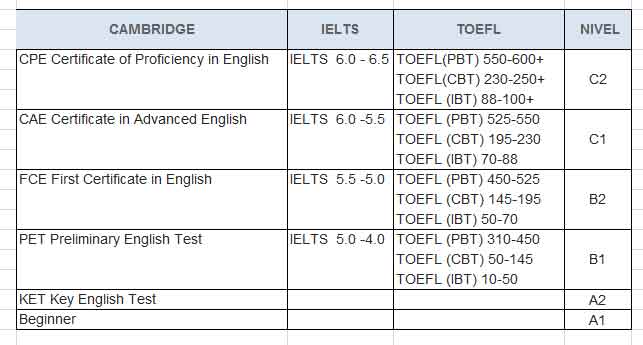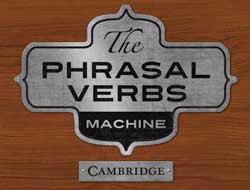B1 – PET – Unit 3
Grammar reference Verbs followed by to or – ing
some verbs are followed by the –ing form of another verb:
Everyone enjoys listening to music. I have finished reading my book.
Other verbs like this include:
Admit, avoid, dislike, fancy, feel like, imagine, mention, mind, miss, practise, put off, suggest.
| VERB + VERB + ING | ||
| LIKE | SWIMMING | |
| LOVE | READING | |
| ENJOY | SUNBATHING | |
| FEEL LIKE | GOING | |
| ADMIT | WANTING | |
| AVOID | GOING | |
| IMAGINE | LIVING | |
| MIND | WORKING | |
| SUGGEST | BUYING | |
| RECOMMEND | STUDYING | |
| FINISH | PAINTING |
some verbs are followed by the to + infinitive of another verb:
We expected to win the game. I can’t afford to buy a car.
other verbs like this include: agree, appear, attempt, begin, decide, demand, fail, hope, intend, learn, manage, offer, plan, pretend, promise, refuse, seem, want, would like.
| VERB + TO + VERB | ||
| EXPECT | TO | GO |
| AFFORD | BUY | |
| AGREE | STAY | |
| APPEAR | LIKE | |
| ATTEMPT | DO | |
| BEGIN | TALK | |
| DECIDE | ACCEPT | |
| DEMAND | SEE | |
| FAIL | CONVINCE | |
| HOPE | WIN | |
| INTEND | STUDY | |
| LEARN | SPEAK | |
| PLAN | TRAVEL |
some verbs are followed by the-ing or the to infinitive of another verb with similar meanings:
I love playing tennis. I love to play tennis. It continued raining all day. It continued to rain all day.
other verbs like this include:
begin, continue, hate, like, love prefer, start.
Phrasal verbs
a phrasal verb is a combination of a verb and a preposition, a verb and an adverb or a verb with both an adverb and a preposition, any of which are part of the syntax of the sentence.
phrasal verbs are important because of their figurative or idiomatic application in every day speech.
a phrasal verb consists of two or three parts. There are three main kinds of phrasal verb:
- verb + adverb, with object, e.g. he picked up his coat.
- verb + adverb without object, e.g. the plane took off.
- verb + adverb + preposition, with object, e.g. I got on with my work
Unit 3
ESSENTIAL VOCABULARY
admission fee (n) the amount of money that you pay to enter a place.
- patient (adj) having patience.
can afford (v) to have enough money to buy something.
- put someone’s name down (v) to write a name on a list or document.
- art gallery (v) a building that is used for showing paintings and other art.
- set out (v) to start a journey.
backpack (n) a bag that you carry on your back.
- sightseeing (n) visiting interesting places.
book ahead (v) to arrange to use or do something at a particular time in the future
- surfing (v) the sport of riding waves on a board.
catch up with (v) to reach someone or something in front of you by going faster, working harder etc.
- take up (v) to start doing a job or activity.
chess (n) a game that two people play by moving pieces around a board of white and black squares.
- tent (n) a structure made of metal poles, ropes and cloth fixed to the ground to sleep under
cyclist (n) someone who rides a bicycle.
- turn into (v) to change and become someone or something different.
deal with (v )to take action in order to achieve something
- value (n) how useful or important something is.
diving (n) the sport of jumping into water head first.
- water-skiing (v) a sport in which someone is pulled behind a boat while standing on skis .
feel like (v) to want something or want to do something.
- work out (v) to calculate an amount. Or to do physical exercise
formal (adj) being serious and not relaxed about behaviour
language, clothes etc.
get on with (v) to continue doing something especially work
give up (v) to stop doing something before completing it.
go off (v) to stop liking someone or something.
go on (v) to last for a particular period of time.
healthy (adj) physically strong and well or good for your health
helmet (n) a hard hat that protects your head
instrument (n) an object that is used for playing music.
join in (v) to become involved in an activity with other people
look forward to (v) to feel happy and excited about something that is going to happen
make up for (v) to reduce the bad effect of something.
mountain-biking (n) riding a bicycle made foe hills or mountains.
opening hours (n) the time of the day when a place is open to the public.
oven (n) a piece of kitchen equipment with a door used for cooking food


 Con el verano llueven los programas de aprendizaje de inglés para empresas y jóvenes. Aunque los escolares y muchos universitarios disfrutan ahora de sus vacaciones y pueden ir de intercambio, no hay que olvidar que esta época también es buena para otro tipo de públicos, como aquellos que buscan preparación de entrevistas de trabajo o inglés de negocios online.
Con el verano llueven los programas de aprendizaje de inglés para empresas y jóvenes. Aunque los escolares y muchos universitarios disfrutan ahora de sus vacaciones y pueden ir de intercambio, no hay que olvidar que esta época también es buena para otro tipo de públicos, como aquellos que buscan preparación de entrevistas de trabajo o inglés de negocios online.

 ¿Por qué piensan los estudiantes que para
¿Por qué piensan los estudiantes que para